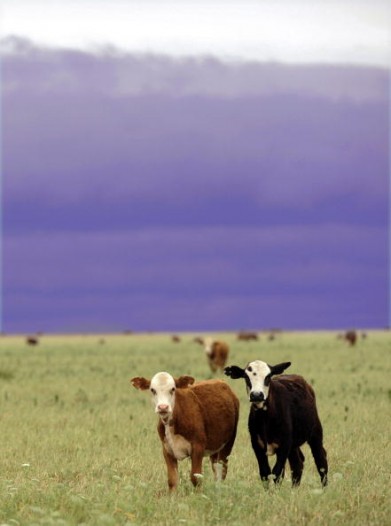http://blogs.ft.com/beyond-brics/2011/03/09/paraguay-beefs-up-meat-exports/
Paraguay beefs up meat exports
 There’s a South American country that dines out on its international reputation for succulent steaks. Its name is . . . Paraguay?
There’s a South American country that dines out on its international reputation for succulent steaks. Its name is . . . Paraguay?
Argentina, the land of the legendary gaucho, has been quietly slipping down the beef export stakes. Once the proud home of the world’s biggest beef eaters, Argentina has now been overtaken by Paraguay, as well as neighbouring Uruguay, in exports.
That’s a bitter blow for Argentina, which sees itself as a world power, more like Brazil than Paraguay, which is one of the region’s poorest countries, well off the international radar and with a blighted reputation for corruption.
Paraguay exported a little over 170,000 tonnes of meat last year, behind Argentina, whose own beef exports were nearly 192,000 tonnes.
But that Argentine result was a plunge of more than 54 per cent compared with 2009 exports “thanks to the restriction of supply we are seeing at a domestic level and which was basically generated by a national policy that is systematically anti-beef farmers” according to the meat industry chamber, CICCRA.
In January, however, Paraguay exported nearly 8.2 tonnes of beef, while in January, Argentina exported 7.9 tonnes – equivalent to 2 days of domestic consumption, according to CICCRA’s Miguel Schiariti, who prepares a monthly report on the sector. “Paraguay has never been a reference for us, and we’ve never looked at it too closely,” he lamented.
Being overtaken by Paraguay as an exporter is the latest in a string of blows to Argentina’s meat credentials. Argentines still chomp through 60 kilos of beef per person per year, but that is down from historic highs and Uruguay has now overtaken it as the world’s top meat-eating nation.
Regulatory uncertainty, a catastrophic drought in 2008-09 and the surge of soya, which offers a more profitable return per acre, pushed beef exports and production last year to their lowest levels in a decade. CICCRA blames government policies for the exit of 4,600 small producers and the 3,500 job losses in the meat industry, while “condemning all consumers to pay nearly double for beef than the year before and to reduce per capita consumption to 2001-02 levels”.
Paraguay, meanwhile, is on the up. Daniel Rojas, president of the National Service of Animal Quality and Health, or Senacsa, sees 2011 as “a new record year” in beef, now the country’s second export product, after soya.
Last year was stellar for Paraguay in other ways too. The economy grew by 14 per cent, the fastest rate since records began, and the outlook for the country’s key farming sector remains positive. BBVA predicted in a new report that it could be possible to maintain the high yields of the last harvest, thus boosting allied sectors including the processing industry, transportation and commerce.
“After growing a historic 14 per cent last year, the Paraguayan economy is expected to expand at a more sustainable rate of around 4.5 per cent in 2011,” BBVA added. “Over the coming years, economic growth will be around its trend level of 4 per cent.”
Argentina remains a far larger economy. But Paraguay’s beef rise should give it food for thought.
No hay comentarios:
Publicar un comentario